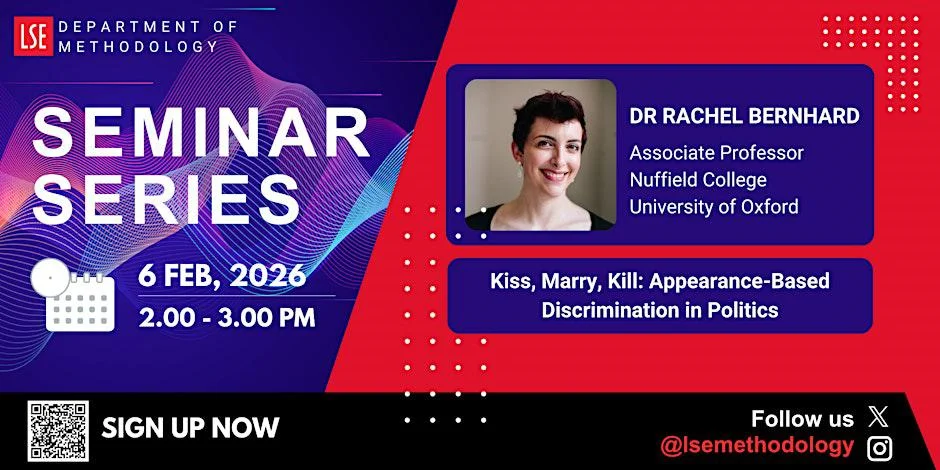Seminar Series

Join leading social scientists as they consider cutting-edge quantitative and qualitative methodologies, analyse the logic underpinning an array of approaches to empirical enquiry, and discuss the practicalities of carrying out research in a variety of different contexts
Sign up to the mailing list

Up next: Dr Rachel Bernhard | 6 February 2026 | 2.00 - 3.00pm
Kiss, Marry, Kill: Appearance-Based Discrimination in Politics
Next: Dr Iman Dawood | 13 February 2026 | 2.00 - 3.00pm
How Ideologies Become Invisible: Methodological Reflections on the Study of ‘Common Sense’
Events will be released on Eventbrite two weeks before they take place. Keep an eye on this page and our social media for more information.

To be notified of all future seminars, subscribe to the Seminar Series mailing list and follow us on social media.
Our seminars take place in person during Autumn and Winter term and are free and open to all, LSE students and staffs and external participants. Light refreshments are provided.
The Department of Methodology is committed to sustainable practices and therefore ask that, if you can no longer attend, you cancel your ticket on Eventbrite to help us reduce food waste. Read more about #SustainableLSE.
Events archive